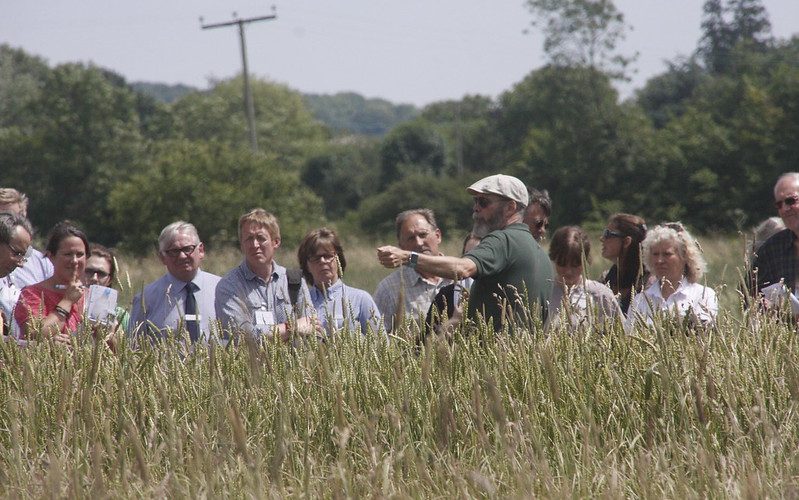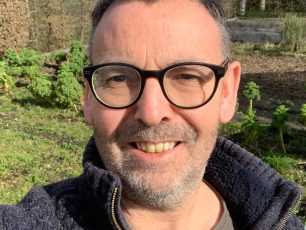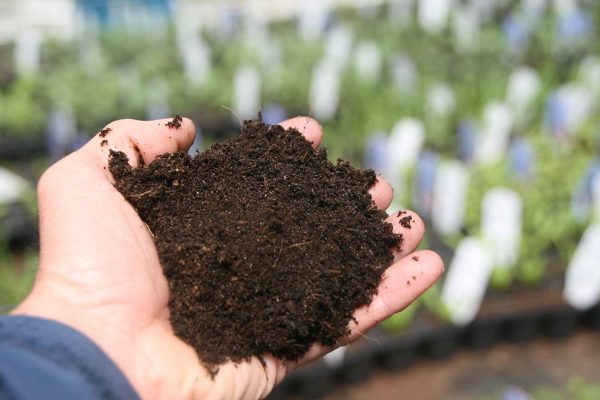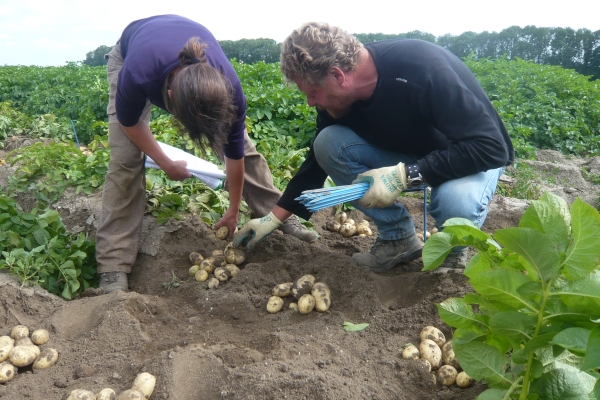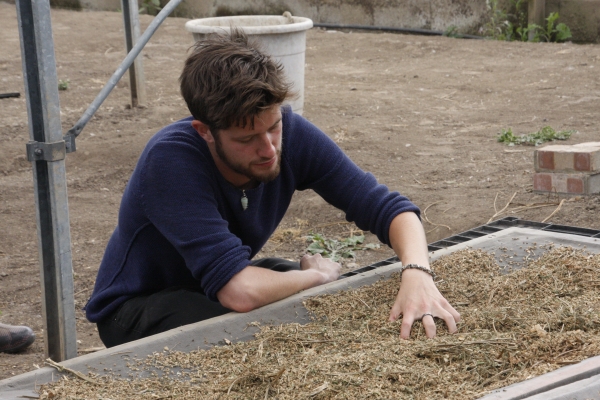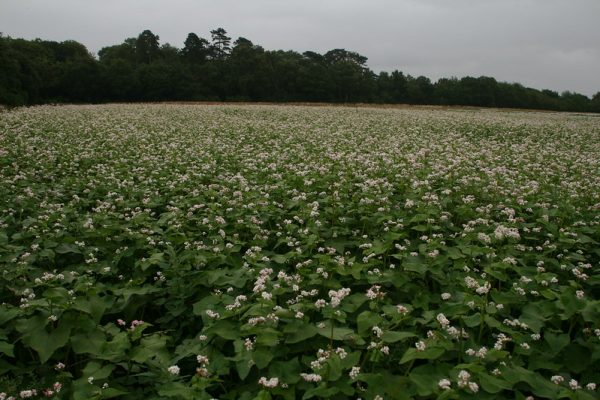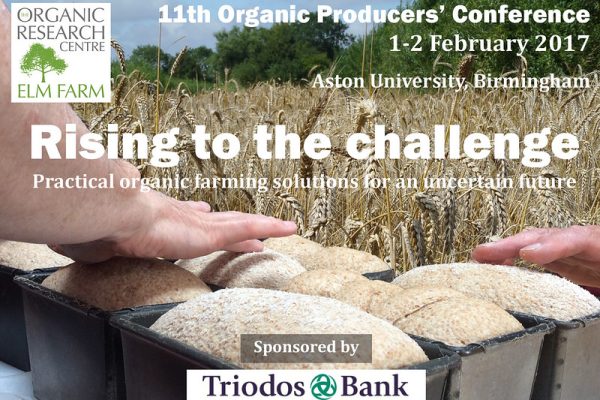NOCC NOCC? Who’s there…?
Organic Research Centre! We are partners in NOCC 2017 – National Organic Combinable Crops – OF&G’s flagship event, which is the largest UK on-farm event in the organic calendar. We are lucky that this year it is being held just down the road from us at Cottonworth Farm, near Andover in Hampshire. That means that we are able to be more involved than ever, bringing our expertise on intercropping, cereal diversity, use of on-farm woody resources, and measuring the life in your soil to the event.
NOCC will be hosted by innovative organic arable farmers James Liddell and sons Tom and Hugh on Thursday 6 July. Visitors will have the chance to learn about the farm and its operations during an extensive farm walk. There will also be panel discussions with experienced industry professionals talking crop varieties, latest agricultural equipment, weeds, seeds, soils, product quality, routes to market, and more.
We all know about the importance of soil biology and soil organic matter to our cropping systems, but how do you assess the life in your soil? ORC researcher Anja Vieweger and Simon Parfey of SoilBioLab will demonstrate practical soil assessment tools in the field, including earthworm counts and looking at mycorrhiza under the microscope. There will be a chance to discuss the pros and cons of commonly used approaches.
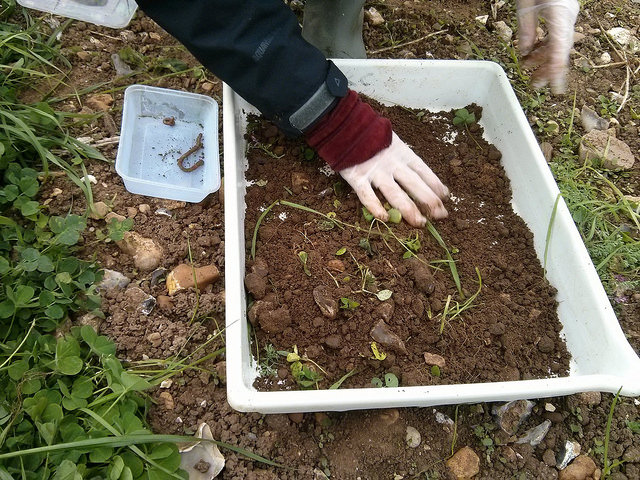
Scanning soil for worms at Tolhurst Organic, October 2016
Here at ORC, we believe passionately in building resilience through diversity. This is backed up by sound science. Alongside the demonstrations of the latest commercial varieties, ORC with crops researcher Ambrogio Costanzo will showcase new highly diverse mixtures, the ORC Wakelyns Population (where each individual in a crop is bred to be genetically distinct from every other one, making the whole crop more resilient to changes in weather conditions and pest and disease pressures) and ancient wheats; Emmer, Einkorn and Rivet, to widen the horizons of cereal production. We will explore a wide phenotypic diversity and discuss how to improve field performance on marginal land and diversify cropping and market opportunities for cereal growing.
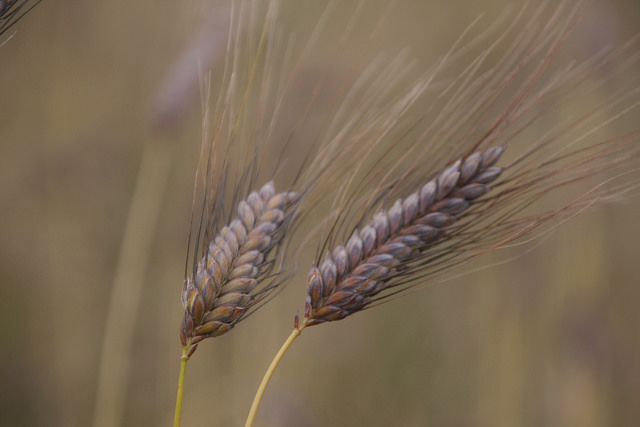
Emmer Mv Hegyes – A resistant variety having high nutritional value and low nutrient demands, making it suitable for organic agriculture
Old wheat cultivars, as well as diverse populations, are often reported to be not as suitable as commercial pure lines for conventional bread making. But what about alternative bread making processes? Baker Kimberley Bell has been exploring processes to make bread from ORC Wakelyns Population flour, with excellent results. There will be a chance to taste a slice of diversity for yourself.
Intercropping can improve sustainability, resilience and productivity. There are many examples of advantageous combinations of cereals and legumes but results are often unpredictable and practices are not yet widely adopted. Plots will display mixtures of different wheat and bean varieties. Come along and our researcher Dominic Amos will explore with you which traits are required for successful intercropping, and discuss how we can develop them.
Trees and hedges can present management challenges for farmers, but could be an untapped resource. Researchers Sally Westaway and Jo Smith from the agroforestry team at the ORC will be joined by William Hamer, forestry consultant and director of Hampshire Woodfuel Cooperative, to discuss the pros and cons of managing on-farm woody resources including hedges and small woodlands as a productive part of the farm enterprise.
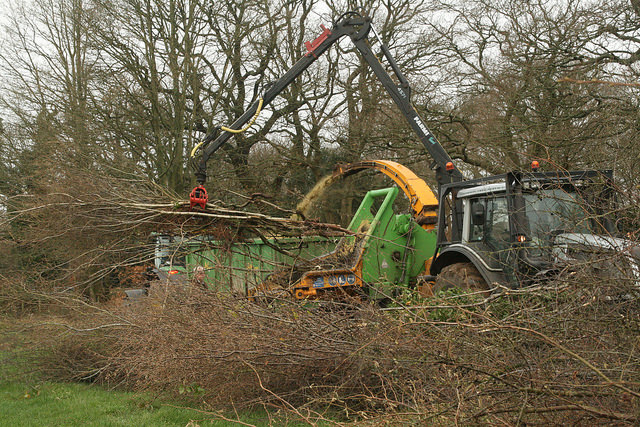
Chipping harvested material as part of hedgerow harvesting trials at Elm Farm, December 2014
Other topics will include weed management, green manures, sowing rates and machinery.
There is always a fabulous organic lunch provided and, who knows, maybe a drop of Cottonworth farm’s award-winning English sparkling wine? This will be followed by leading speakers from the sector on the issues of the day, and a panel discussion hosted by BBC Farming Today and Countryfile presenter Charlotte Smith.
All in all, NOCC is a highlight of the organic calendar, and an inspiring and challenging day for organic and conventional farmers alike. Hope to see you there!
Phil Sumption is Research Communication Officer in the Organic Research Centre.
Header image: Bruce Pearce on wheat populations at NOCC16. All photo credits: Organic Research Centre
